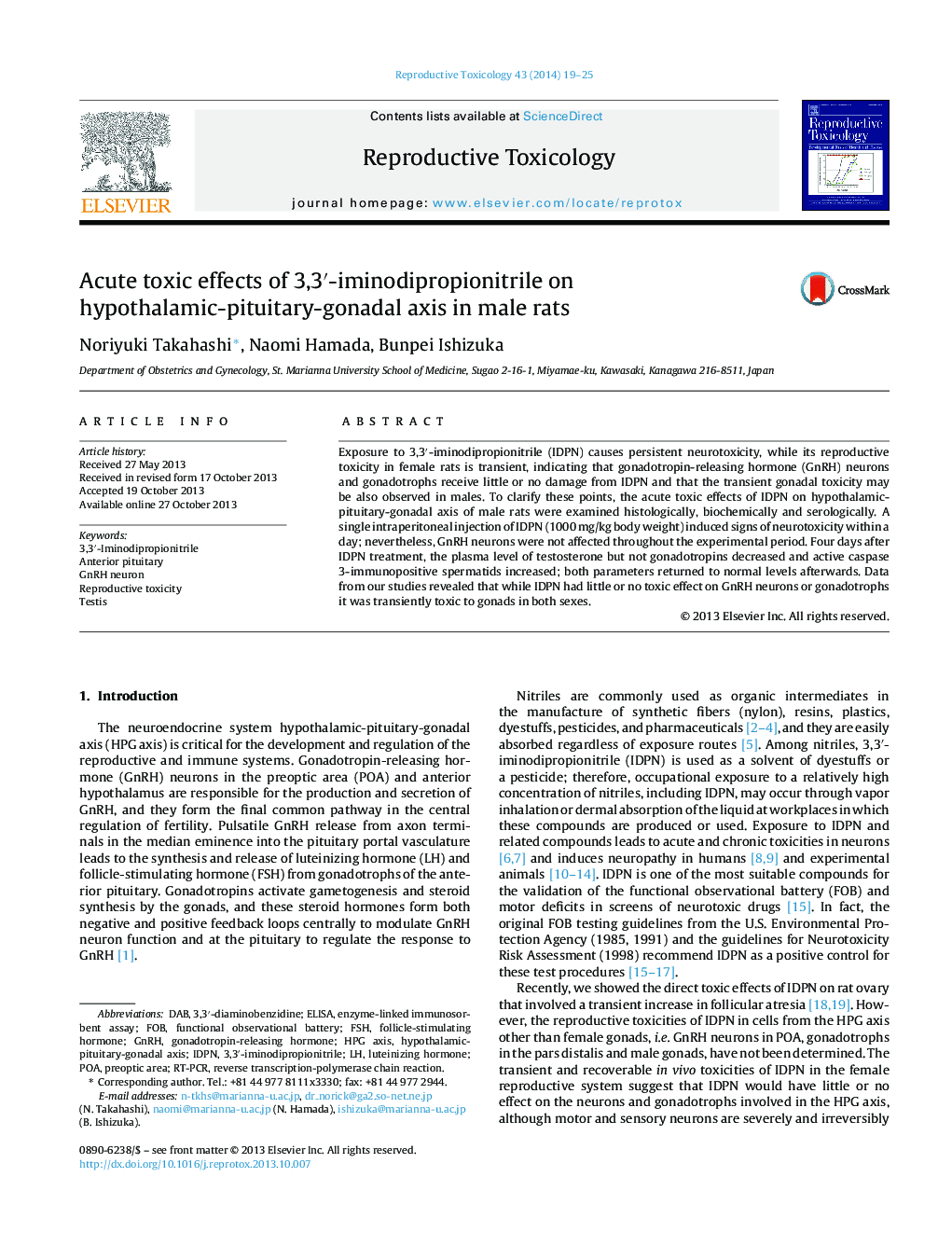| Article ID | Journal | Published Year | Pages | File Type |
|---|---|---|---|---|
| 2593552 | Reproductive Toxicology | 2014 | 7 Pages |
Abstract
Exposure to 3,3â²-iminodipropionitrile (IDPN) causes persistent neurotoxicity, while its reproductive toxicity in female rats is transient, indicating that gonadotropin-releasing hormone (GnRH) neurons and gonadotrophs receive little or no damage from IDPN and that the transient gonadal toxicity may be also observed in males. To clarify these points, the acute toxic effects of IDPN on hypothalamic-pituitary-gonadal axis of male rats were examined histologically, biochemically and serologically. A single intraperitoneal injection of IDPN (1000Â mg/kg body weight) induced signs of neurotoxicity within a day; nevertheless, GnRH neurons were not affected throughout the experimental period. Four days after IDPN treatment, the plasma level of testosterone but not gonadotropins decreased and active caspase 3-immunopositive spermatids increased; both parameters returned to normal levels afterwards. Data from our studies revealed that while IDPN had little or no toxic effect on GnRH neurons or gonadotrophs it was transiently toxic to gonads in both sexes.
Keywords
Related Topics
Life Sciences
Environmental Science
Health, Toxicology and Mutagenesis
Authors
Noriyuki Takahashi, Naomi Hamada, Bunpei Ishizuka,
